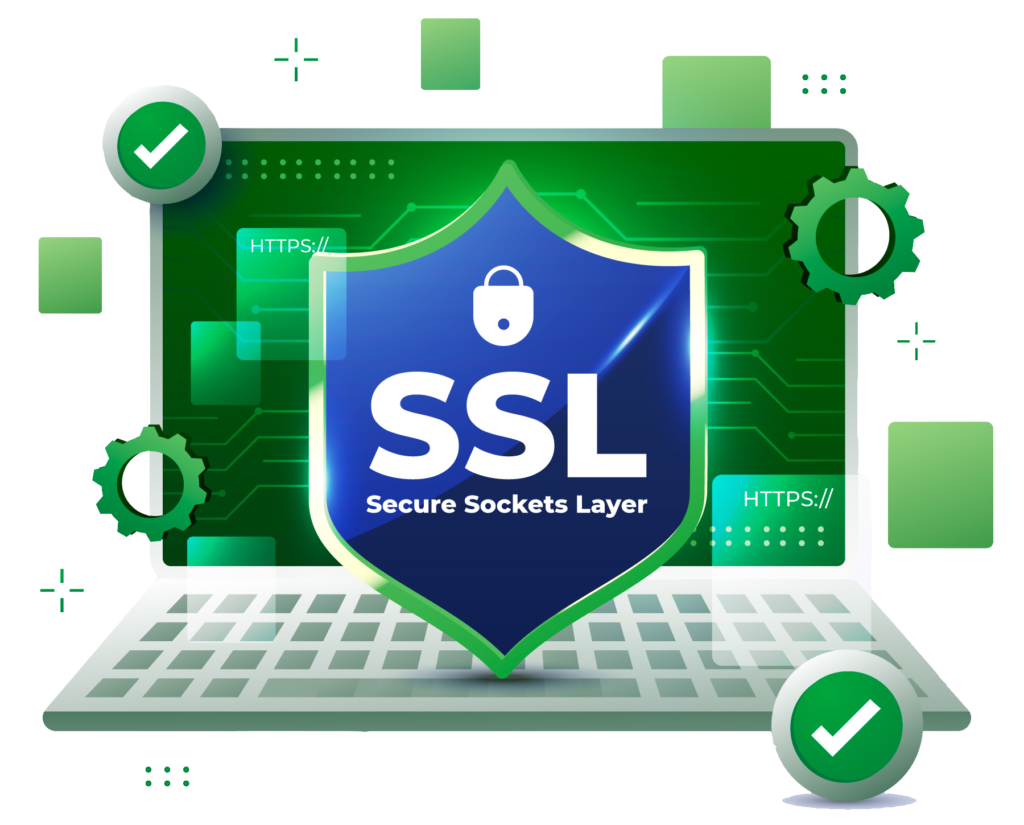In today’s fast-paced digital world, online security is more crucial than ever. An essential component to ensure the protection of your website and the trust of your visitors is the implementation of an SSL Certificate. In this article, we will thoroughly explore why your website can’t afford to do without this extra layer of security.
What is an SSL Certificate and why is it Important?
An SSL Certificate, or Secure Socket Layer, is a standard security protocol that encrypts communication between a user’s browser and the web server. This encryption prevents sensitive data, such as credit card information or passwords, from being intercepted by malicious third parties.
Security of User Data
The main reason to obtain an SSL Certificate is to protect the confidential information of users visiting your website. By encrypting data transfer, you ensure that sensitive information is kept safe, building trust between visitors and your site.
Improved Search Engine Positioning (SEO)
Implementing an SSL Certificate can boost your rankings on search engines, such as Google. Since Google announced that it will prioritize secure websites in its search results, having an SSL Certificate has become a relevant factor for SEO. This translates into greater visibility and, ultimately, more qualified traffic.
Reliability and User Trust
A website with an SSL Certificate shows users that you care about security and privacy. The presence of the lock icon in the address bar and the change from “HTTP” to “HTTPS” indicate that the connection is secure. This positive perception increases user trust, which can be crucial to the success of your website, especially if you handle online transactions.
How to Obtain an SSL Certificate
Obtaining an SSL Certificate for your website is a process that involves acquiring the certificate and installing it on your server. You can obtain an SSL Certificate through trusted providers, such as Let’s Encrypt, or through your web hosting provider.
Types of SSL Certificates
There are different types of SSL certificates, from standard (DV) to extended validation (EV). The choice of type will depend on your specific needs and the level of trust you want to convey to your users.
Domain Validation Certificate (DV):
- It offers a basic level of security.
- Validation focuses on ownership of the domain.
- Quick and easy issuance process.
- Suitable for personal blogs and informational sites.
Organization Validation (OV):
- It involves a more rigorous validation than DV.
- Confirms the existence and legality of the organization.
- Increase user confidence by displaying organizational information in the certificate.
- Ideal for business and commercial websites.
Extended Validation Certificate (EV):
- The highest level of validation and security.
- A thorough verification of the organization’s identity is carried out.
- Displays the address bar in green, indicating a secure connection.
- Recommended for e-commerce sites and financial institutions.
Wildcard:
- Protects one main domain and its unlimited subdomains.
- Provides flexibility for websites with multiple subdomains.
- Ideal for companies with a diversified online presence.
Site Seal Certificate:
- Include a “site seal” on the website to indicate security.
- It can increase user confidence by visually displaying security.
- It varies in design and visibility depending on the certificate provider.
Multiple Domains (SAN/UCC):
- Allows you to protect multiple domains with a single certificate.
- Suitable for businesses with a diversified online presence.
- Provides flexibility and saves costs compared to purchasing individual certificates.
Conclusion:
In conclusion, an SSL Certificate is an essential investment for your website’s security, user trust, and online success. From data protection to boosting SEO, the benefits are undeniable. Do not wait more; Ensure your success on the web today by implementing an SSL Certificate.
If you are looking for the perfect team to help you develop an effective website, we are also here to help you. Also, Contact us today to learn more about our Virtual Store Design services.








